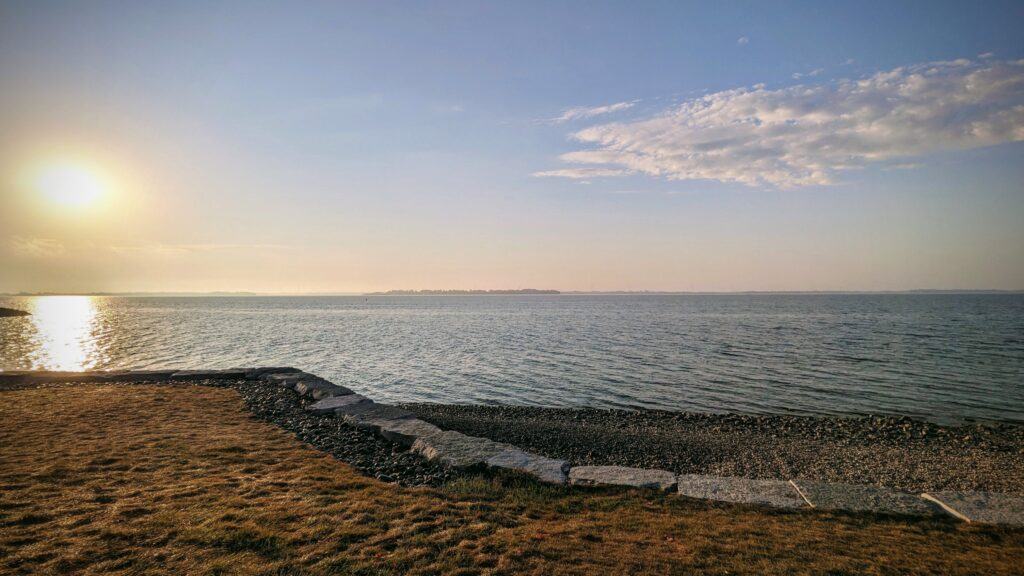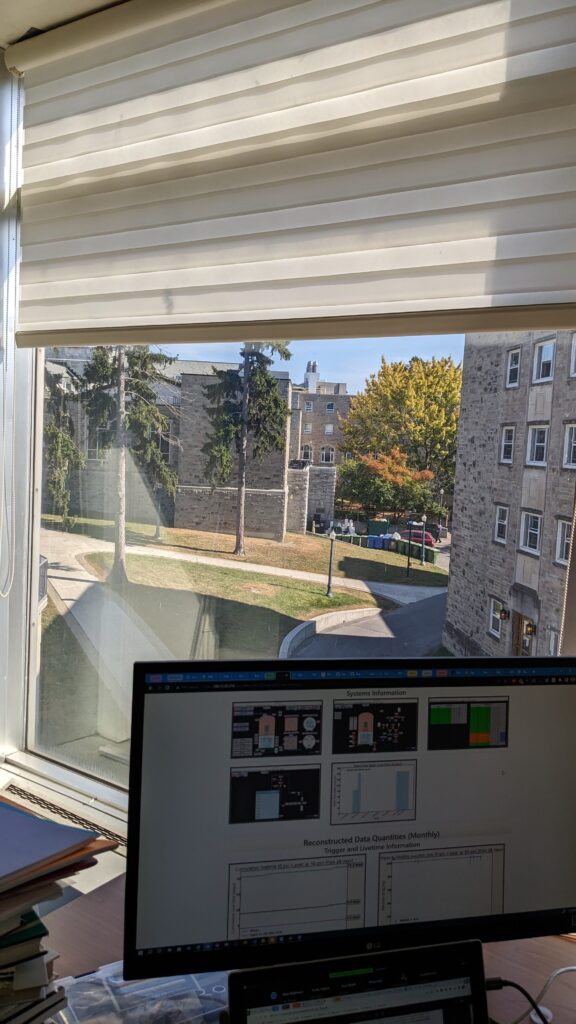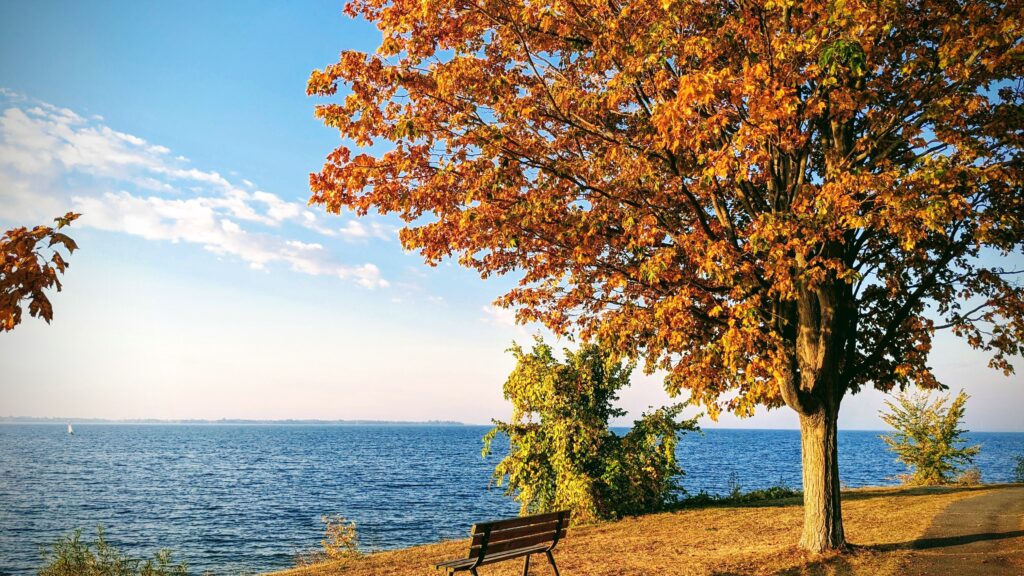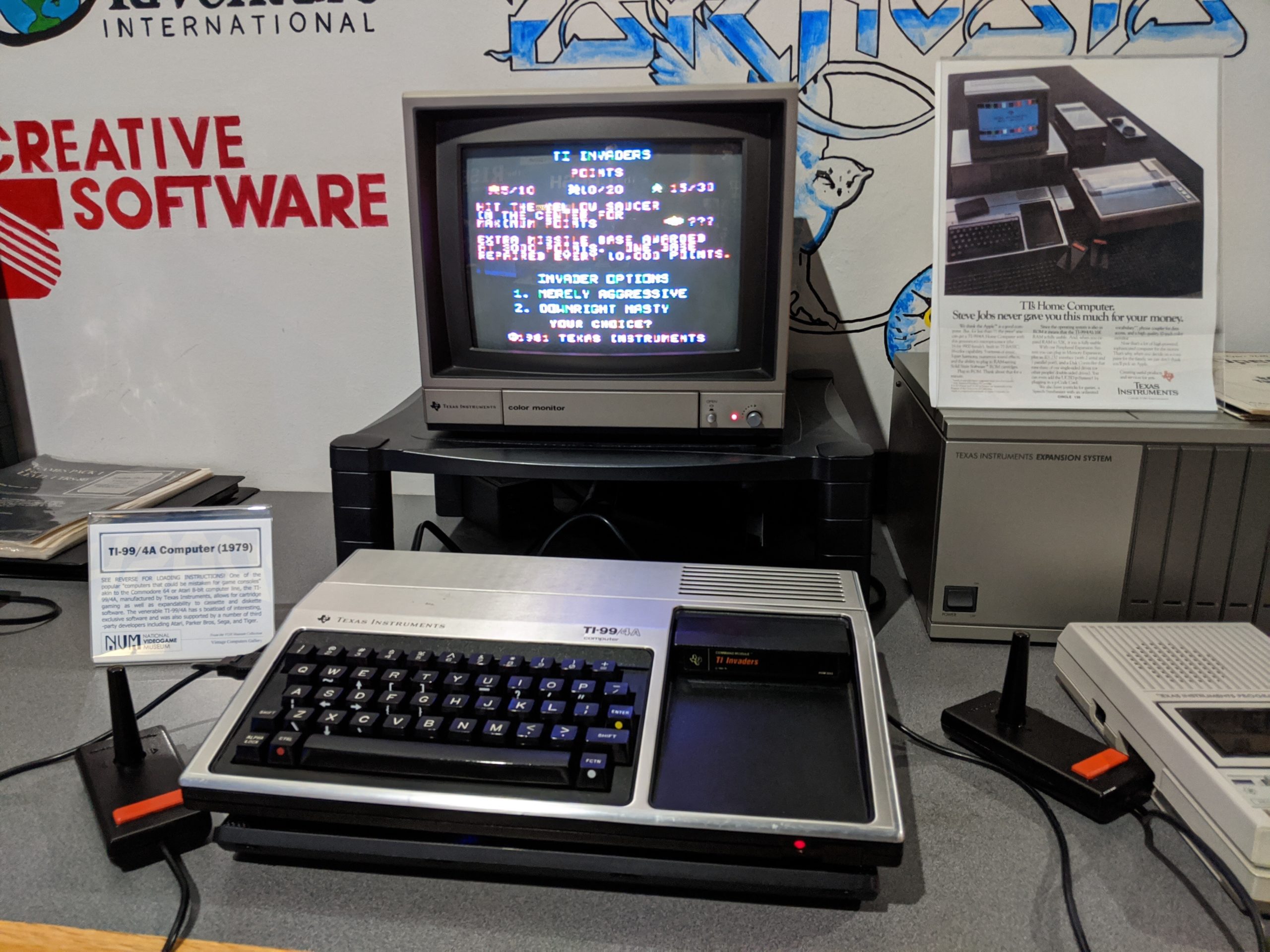What is a work vacation? It’s when you keep working but do it from a different location than your work site. My own experience with this is that doing this can vastly improve productivity while serving the interests of your employer and yourself. Last week, I had something of a work vacation when I traveled for work from Sudbury to Kingston to conduct activities at Queen’s University.
The trip was primarily intended to advance some activities for SNOLAB, particularly coordination of activities for the SNOLAB Experiment Forum (SEF). Each experiment or project hosted at the lab has a representative in the forum who brings their concerns and inputs to the SEF. I serve as a co-chair of the forum, and we have an upcoming virtual touchpoint meeting in two weeks. My co-chair is in Kingston, so we were able to catch up on a number of items in concert with administrators at SNOLAB.
I was also able to advance some conversations with colleagues about potential future projects that could be hosted at SNOLAB. In addition, I was able to spend time working with students and postdocs on the PICO dark matter bubble chamber experiment. We are entering a period of quite stable operations, and that means preparing for robust monitoring of data-taking conditions and planning for blinding the data set for an eventual dark matter search. These are exciting times!

Part of travel like this is about settling into a routine. I don’t generally like being away from home. So to compensate, I settle into a predictable routine that lets me clock the days until I go home. It’s some strange mental process that gives me comfort. In the morning, I wake up and read the newspapers as usual (“The Globe and Mail” and the “Washington Post”), then grab breakfast. I would then walk the 2 km from my hotel to Stirling Hall, home of the Department of Physics, Engineering Physics, and Astronomy. It was so lovely while I was there I added 10 extra minutes just to walk along the lakefront (Lake Ontario), admire the morning and evening views, and get some extra exercise.

I would work in the morning, usually involving meetings for SNOLAB-related activities. I would use the afternoon for conversations with students, postdocs, and faculty colleagues. I was very grateful to be hosted in an Emerit Faculty office, and I tried to leave it as I found it. I don’t have an office in my department, but that is sensible. After all, I am seconded for 4 more years to SNOLAB, and it would be a huge waste of resources to have a (mostly) empty office parked for me back at the University. I’ve been lucky to be able to have some space for my visits, and I continue to be grateful to my Department Head for accommodating my short visits.

In the evening, I would take the scenic route back to the hotel and grab dinner. I spent my evenings reading Richard Rhodes’s “Dark Sun: The Making of the Hydrogen Bomb,” which I never managed to read during my period teaching about the scientific legacy of the Manhattan Project. I am trying to focus now on the post-war period of atomic energy and weapons. I believe that period has important lessons on industrial scaling from basic science to manufacturing. While I have ZERO interest in making weapons, physics projects get bigger and more elaborate every year. It’s important to learn the lessons of the past about how projects scaled from research and development to large and routine industrial operations.
I am relieved to be back in Sudbury and working again at SNOLAB. My joy is brief. Next week, I am off to France for a very short trip and a two-day meeting at the Modane Underground Laboratory. It will be one of my more difficult international trips in a while, with lots of time on planes and trains. I will be relieved when I am back in Sudbury after that, as travel will be much more infrequent after that … at least, until next summer.




